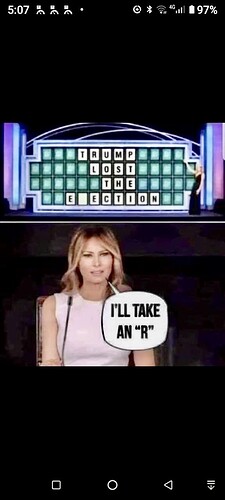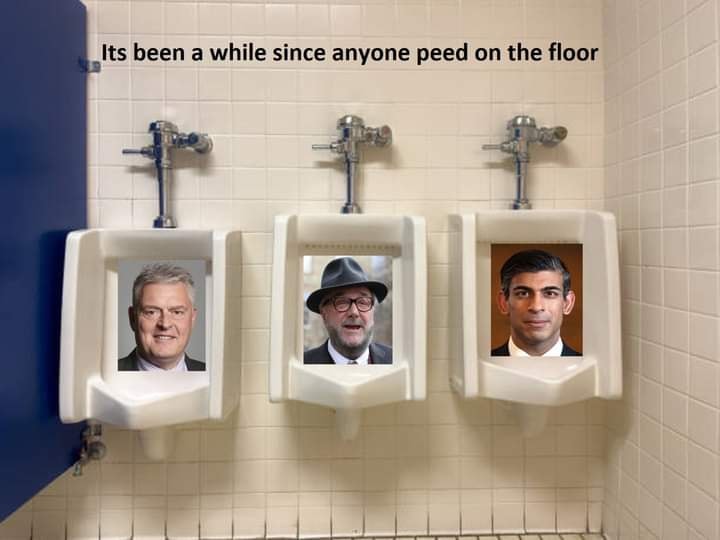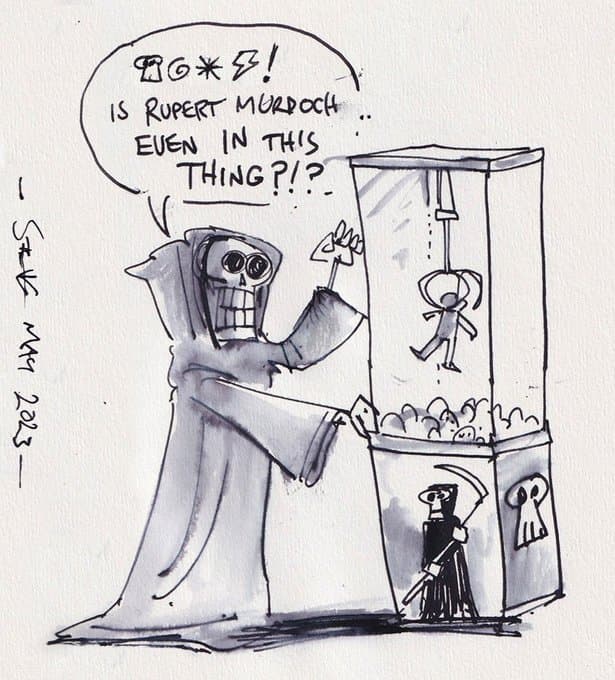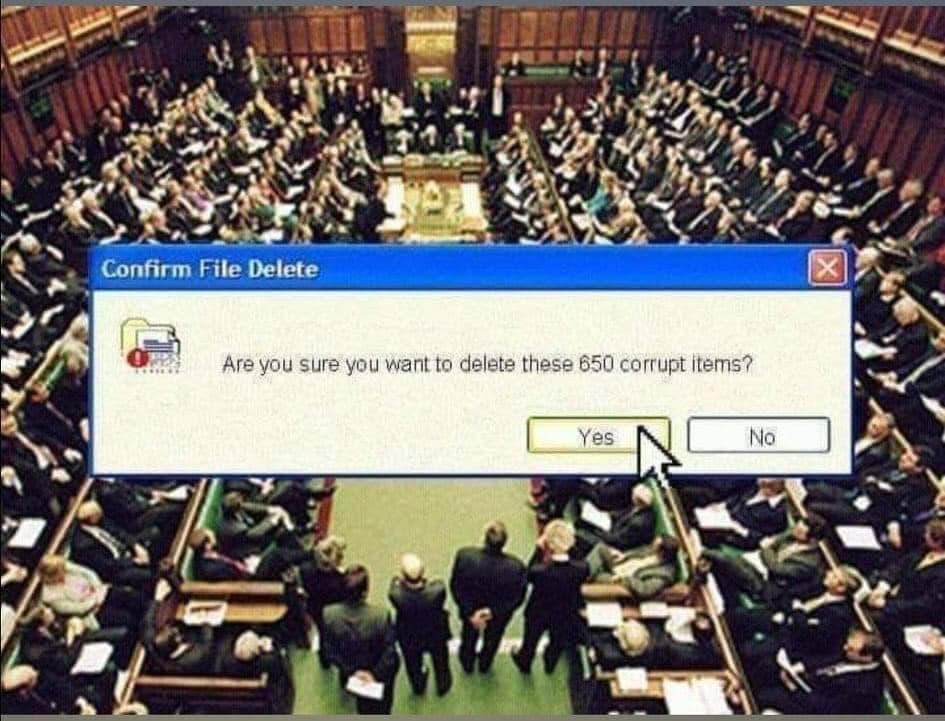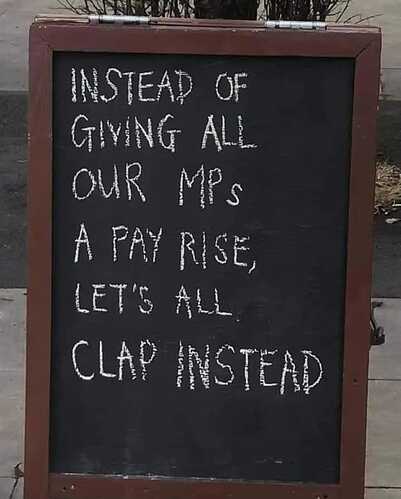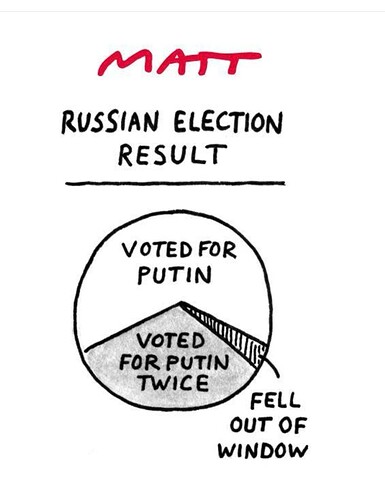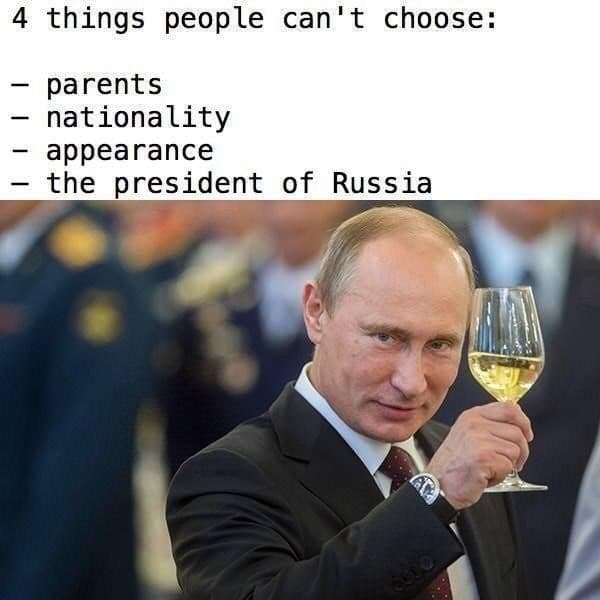I missed the Rise and Fall of BJ last night, I’m not having any luck on finding a repeat, any idea, please?
I don’t have any of the catch up type options.
It was shown on Channel 4 and they have several channels where they do their repeats 4/7, more 4 etc. In fact it looks like it might be on 10pm French time / 9pm UK tonight. Scroll through your TV programme guide.
Sorry! Just realised it’s episode 2 tonight. I bet they will show it all again, but maybe not until the series has been shown in its entirety.
Thanks @SuePJ , tonight is the 2 of 3 parts.
Sorry. My mistake.
I did watch a version on YouTube last year (Peter Osbourne ?or Bylines ?) but not sure if current version is a play on that? I hate not starting at the beginning. Hey ho
Most of them deserve the clap, not a clap ![]()
In case anyone interested is wondering, as I was, why dictators bother with sham democratic elections, this NYT article by Amanda Taub explains it nicely:
Why do autocrats like Putin bother to hold elections?
The elections in Russia earlier this month were widely condemned as a performance that fell somewhere between tragedy and farce. Although President Vladimir Putin does have substantial public support, the vote was stage-managed to ensure that he would be “re-elected” with more than 87 percent of the vote.
And the result was fixed long before Russians even arrived at polling stations: The political opposition has been ruthlessly crushed, independent media has been silenced and public protesters have been given draconian prison sentences. Russia’s most prominent opposition politician, Aleksei Navalny, died in prison last month.
All of which raises an interesting question: Why do autocratic leaders bother holding rigged elections at all?
False results, real messages
It can be helpful to think of elections in autocratic states as an exercise in propaganda, targeted at multiple audiences. Fixing a vote can be a way for an incumbent like Putin to demonstrate his control over the levers of power: there is value in demonstrating that bureaucratic agencies, local governments, security forces and the media are loyal (or cowed) enough to participate in such a substantial, expensive and complex project.
That performance of control can also serve as a warning to the opposition and any of its potential allies, underlining the apparent futility of protest. “If you have an 87 percent victory, it’s like, ‘Do I really want to die, when this is just pointless because he’s got such an iron grip on power?’” Brian Klaas, a political scientist at University College London who coauthored the book “How to Rig an Election.” “Part of that is to basically exhibit dominance over the domestic sphere and deter opposition.”
The public might know that the election has been rigged, but not know by how much. So even a manipulated election can contribute to the image of a leader’s popularity, especially if the press is already heavily loyal, Klaas said.
Foreign audiences matter, too. Just as human rights-violating states often create sham justice tribunals to create the illusion of accountability, making it less embarrassing for allies to continue propping them up, autocratic regimes sometimes use rigged elections to allow their allies to claim they are supporting an “elected” government.
That is probably less of a consideration for Russia, which was heavily sanctioned by Western nations after it launched its full-scale invasion of Ukraine in 2022, and now looks to autocratic states like China and North Korea for support. But for countries that are more reliant on aid from democratic allies, holding some form of elections can be an crucial element of maintaining that support.
Knowledge is power
Elections can also be a vital source of information. “Dictators are victims of their own repression because no one tells them the truth,” Klaas said. “So one thing that dictators do is they use elections as a proxy to figure out how popular they genuinely are.”
Allowing some campaigning and a few other names on the ballot paper can offer a window into a leader’s actual appeal — even if the government then tweaks the results to prevent the real information from ever becoming public.
The process can also help leaders identify opposition figures who might become threats. Putin, for instance, cracked down on the nascent opposition and protest movement that formed around the 2011 Russian elections, using arrests, forced exile and other repressive methods to further concentrate power in his own hands.
But that method can occasionally backfire. Researchers have found that simply holding elections can open a door to eventual regime change, even when they were intended to do the opposite.
Recent decades, Klaas said, have amounted to a period of “authoritarian learning,” in which autocratic leaders have become increasingly skilled at electoral manipulation.
“Only amateurs steal elections on Election Day,” he said. “The pros are really doing it in advance, through a series of much more savvy, subtle ways.”
![]()
![]()
Marvelous and why not take money of the dumbest of the dumb, he has big debts to pay so thats a lot of bibles.![]()
Very 19th century snake oil selling shyster.


